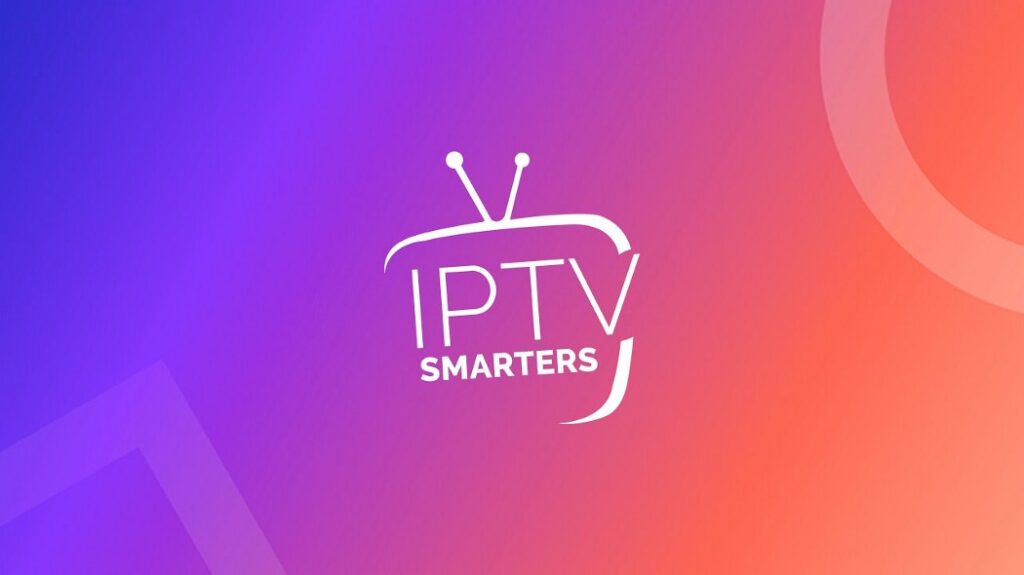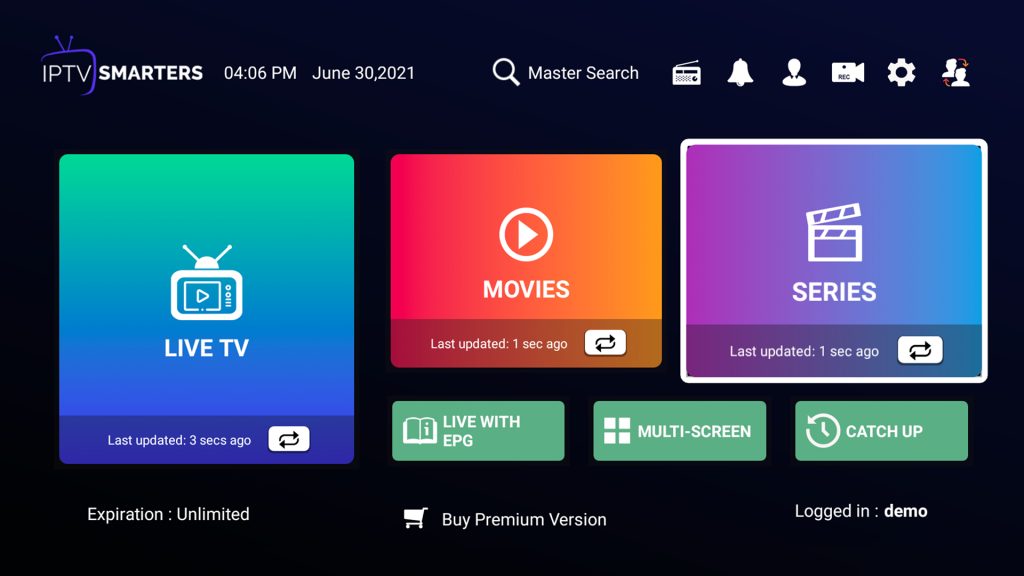iptv smarters pro username and password
So, what is IPTV?

iptv smarters pro username and password If you are using any streaming services online, the chances are that you are relying on IPTV to deliver to your screen.
Even if you are casually watching TV, you may also be using IPTV.
The traditional way of broadcasting TV content via cable and even satellite is massively getting replaced by internet-based streaming.
And IPTV is (mainly) to blame for that. // iptv smarters pro username and password
We as viewers never seemed to care too much for owning the content we see. We were mainly there to, well, view it. Cue streaming services and cue IPTV.
Let’s get into the gist of our IPTV tutorial, shall we?
-
Product on sale
 IPTV UK 1 MONTHOriginal price was: € 20,00.€ 15,00Current price is: € 15,00.
IPTV UK 1 MONTHOriginal price was: € 20,00.€ 15,00Current price is: € 15,00. -
Product on sale
 IPTV UK 12 MONTHSOriginal price was: € 99,00.€ 69,00Current price is: € 69,00.
IPTV UK 12 MONTHSOriginal price was: € 99,00.€ 69,00Current price is: € 69,00. -
Product on sale
 IPTV UK 6 MONTHSOriginal price was: € 69,00.€ 49,00Current price is: € 49,00.
IPTV UK 6 MONTHSOriginal price was: € 69,00.€ 49,00Current price is: € 49,00. -
Product on sale
 IPTV UK 3 MONTHSOriginal price was: € 59,00.€ 39,00Current price is: € 39,00.
IPTV UK 3 MONTHSOriginal price was: € 59,00.€ 39,00Current price is: € 39,00. -
Product on sale
 IPTV UK 24 MONTHSOriginal price was: € 150,00.€ 100,00Current price is: € 100,00.
IPTV UK 24 MONTHSOriginal price was: € 150,00.€ 100,00Current price is: € 100,00.
What is IPTV?

iptv smarters pro username and password is short for Internet-based Protocol Television.
In essence, it is a protocol that uses the Internet to deliver TV programs and videos to your device, either via broadband or internet connection.
You do not need to sign up for cable with IPTV. The picture you get is entirely from online.
How does it differ from all the popular streaming sites and services and digital video platforms found all over the web, like Netflix or YouTube?
The answer is – not that much, as they both share the Internet as a medium and vast audiences as their recipients.
Some services can be illegal, so tread carefully. // iptv smarters pro username and password
Additionally, a single IPTV subscription covers multiple TV sets as well as all devices used for streaming in one home.
An IPTV has an added advantage of being capable of delivering live TV programs, but also picking a program and watching it at your convenience, whenever you want.
This makes traditional TV and IPTV fundamentally different.
However, it is fundamentally different from old TV services, such as cable. Let’s compare them.
Traditional Modes of TV vs. IPTV
Traditional modes of watching TV, which is mainly cable and satellite, work by allowing viewers to tune in to a certain list of channels provided by the signal.
The main difference between these two is in the way that the signal is transmitted.
For example, cable is wired, meaning there must be a physical coaxial cable connection between the house and the provider.
On the other hand, satellite TV is wirelessly transmitted to a household via radio waves and caught by an antenna or a satellite dish. // iptv smarters pro username and password
IPTV is on a whole another level. It relies on the Internet protocol (IP) to link to the network and deliver TV channels and videos to the end-user’s set-top box.
Rather than via cable or radio waves, IPTV relies on the same Internet networks that you use to browse the web, access social media, play online video games, etc.
It requires a direct Internet connection and functions by relaying data packets via networks between servers and computers. // iptv smarters pro username and password
The main advantage? For one, IPTV does not tune in on channels; instead of accessing live programs only, it has the ability to store the programming and deliver the content from data banks of its servers to viewers at any time.
This is exponentially superior to watching live TV only as it brings a lot more convenience to the end-users.
After all, why regretfully skip your favorite show because it just happens to go live when you’re at work?
How Does IPTV Work?

In other words, watching via IPTV is much akin to browsing the Internet.
IPTV uses IP (Internet Protocol) to deliver videos, which is a mechanism that divides the media in data packets and sends it over the Internet.
That’s right, the same way that your device is loading a website. // iptv smarters pro username and password
A request is sent to a video server. Upon receiving the signal, the video server transmits the content in data packets.
Your device receives the data packets over the Internet connection and turns them into sounds and images. And that’s it. Not too complicated, right?
IPTV Architecture Types
Besides knowing what is IPTV you should also know what types of IPTV exist.
There are a couple of different architecture types for IPTV services and providers, much like in the conventional server networks.
Two main types are of interest to us in this article: // iptv smarters pro username and password
1. Centralized Architecture Model
The centralized architecture model is the simpler and more easily managed solution.
All media content is stored within centralized servers and every node of communication is tied directly to the core server complex.
Since all communication ends up in the centralized server conglomerate, there is no need for a comprehensive distribution system.// iptv smarters pro username and password
Imagine a company with a single boss whom every employee refers to for instructions and you get the gist of it.
Centralized architecture model is, as a rule of thumb, good for a relatively small VOD network, with an appropriate core and edge bandwidth and an efficient CDN (Content Delivery Network).
2. Distributed Architecture Model
Distributed architecture model is a more sophisticated and delicate model than the centralized one, but can nonetheless be as scalable as its counterpart.
The main edge over the centralized model, however, includes bandwidth usage and system management features that can support and manage a much larger server network.
Operators who intend to field a substantially large system should consider opting for a distributed architecture model for a faster, more stable, and more efficient delivery of streaming services right from scratch.
Shifting from centralized to distributed models is an extraordinarily expensive process, so getting the sophisticated technologies for content distribution that the distributed model requires might be the optimal idea if you ever intend to go big.
-
Product on sale
 IPTV UK 1 MONTHOriginal price was: € 20,00.€ 15,00Current price is: € 15,00.
IPTV UK 1 MONTHOriginal price was: € 20,00.€ 15,00Current price is: € 15,00. -
Product on sale
 IPTV UK 12 MONTHSOriginal price was: € 99,00.€ 69,00Current price is: € 69,00.
IPTV UK 12 MONTHSOriginal price was: € 99,00.€ 69,00Current price is: € 69,00. -
Product on sale
 IPTV UK 6 MONTHSOriginal price was: € 69,00.€ 49,00Current price is: € 49,00.
IPTV UK 6 MONTHSOriginal price was: € 69,00.€ 49,00Current price is: € 49,00. -
Product on sale
 IPTV UK 3 MONTHSOriginal price was: € 59,00.€ 39,00Current price is: € 39,00.
IPTV UK 3 MONTHSOriginal price was: € 59,00.€ 39,00Current price is: € 39,00. -
Product on sale
 IPTV UK 24 MONTHSOriginal price was: € 150,00.€ 100,00Current price is: € 100,00.
IPTV UK 24 MONTHSOriginal price was: € 150,00.€ 100,00Current price is: € 100,00.
Set Top Box
We have not mentioned the most obvious and visible part of the IPTV system, which is, of course, the Set Top Box (STB).
When any household subscribes to some sort of an IPTV service, they get provided with this unique piece of hardware, specific to each IPTV service.
A set top box is used as the end node and the final piece of equipment in the large chain of transmission from the servers to your devices’ screens.
It decrypts and decodes data packets and thus turns TV and VOD stream signals into the media that you can see on your TV set. // iptv smarters pro username and password
The set top box does this by connecting to the Internet via the router, and everything that it does is maintained by a network connection.
Different Types of IPTV Services
Besides the classic TV program service, IPTV offers quite a range of more niche services, some of which probably sound familiar. // iptv smarters pro username and password
These include:
- Time-Shifted TV: This is the classic TV program service upgraded with the ability to rewind, pause, and view various media at your convenience. Courtesy of the IPTV servers, of course.
- Video on Demand (VoD): Singled-out videos delivered to you as a viewer on particular demand. This is the service that you use to watch any movie, show, or other type of media from the server’s media library.
- Near Video on Demand (nVoD): A pay-per-view type of media service aimed at multiple users using the nVoD service. The schedule is made before watching and subscribers can pick and watch certain content from the schedule according to their desires.
- TV on Demand (TVoD): A choice of TV channels gets recorded so they can be viewed at users’ convenience.
- Live Television: The regular, classic TV program, with the added maneuverability of various interactivity such as recording, rewinding, pausing, etc.
The Future of IPTV

The use of IPTV has been on the rise and has seen constant growth in the last several years.
On a worldwide scale, the total number of IPTV subscriptions has grown past 130 million.
That said, most of the users are still concentrated in Europe and Asia, although North America also constitutes a considerable portion of the global IPTV revenue.
Needless to say, the Asian market is the fastest growing one.
Of course, the rise in IPTV usage means the fall of traditional television services, and the growth is at the expense of both cable and satellite modes of television.
What is IPTV? Another definition of it can be – the future of TV streaming as we know it.
FAQ
Is IPTV Available in All Countries?
IPTV services are available in most countries. It is important, however, to check that information and also to check whether the IPTV service provider can be trusted.
Always stick with providers of verified reputation.
Can I Use VPN with IPTV?
VPN, or Virtual Private Network, provides anonymity when using online services. It is fully compatible with IPTV and actually goes hand-in-hand really well.
Using a VPN ensures that you can access IPTV content that has been locked for any reason in your country or area of residence. In some cases it even boosts its efficiency.
On the side note, it is important to check whether your country allows or prohibits using VPNs with IPTV.
Sometimes the IPTV service providers themselves prohibit using VPN with their services, which should also be verified.
-
Product on sale
 IPTV UK 1 MONTHOriginal price was: € 20,00.€ 15,00Current price is: € 15,00.
IPTV UK 1 MONTHOriginal price was: € 20,00.€ 15,00Current price is: € 15,00. -
Product on sale
 IPTV UK 12 MONTHSOriginal price was: € 99,00.€ 69,00Current price is: € 69,00.
IPTV UK 12 MONTHSOriginal price was: € 99,00.€ 69,00Current price is: € 69,00. -
Product on sale
 IPTV UK 6 MONTHSOriginal price was: € 69,00.€ 49,00Current price is: € 49,00.
IPTV UK 6 MONTHSOriginal price was: € 69,00.€ 49,00Current price is: € 49,00. -
Product on sale
 IPTV UK 3 MONTHSOriginal price was: € 59,00.€ 39,00Current price is: € 39,00.
IPTV UK 3 MONTHSOriginal price was: € 59,00.€ 39,00Current price is: € 39,00. -
Product on sale
 IPTV UK 24 MONTHSOriginal price was: € 150,00.€ 100,00Current price is: € 100,00.
IPTV UK 24 MONTHSOriginal price was: € 150,00.€ 100,00Current price is: € 100,00.
Conclusion
We hope that this guide has managed to solve every issue that you might have about grasping the idea of IPTV and how it operates.
With information obtained from this article we hope that you have set foot on a path to utilizing the massive market and the future of television and media streaming for your own good.
In the end, knowing a bit more about the topic cannot hurt, right?
Especially if we are talking about all the more convenient ways of entertaining yourself – or earning from entertaining others.
What is IPTV? Now you know; have fun streaming!
Last Update 02/08/2025 by smarters